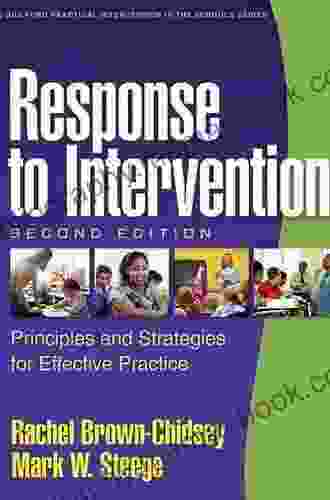Educational Leadership for Ethics and Social Justice: A Comprehensive Guide

Educational leadership plays a pivotal role in shaping the ethical and social consciousness of students, empowering them to become responsible and engaged citizens who contribute to a just and equitable society. This article delves into the significance of educational leadership for ethics and social justice, examining its key principles, essential practices, and the transformative impact it can have on students and communities. By fostering ethical decision-making, promoting social justice, and empowering students, educational leaders can create inclusive and equitable learning environments that prepare students to navigate complex social issues and work towards a more just and sustainable world.
4.5 out of 5
| Language | : | English |
| File size | : | 1403 KB |
| Text-to-Speech | : | Enabled |
| Screen Reader | : | Supported |
| Enhanced typesetting | : | Enabled |
| Word Wise | : | Enabled |
| Print length | : | 234 pages |
The Significance of Educational Leadership for Ethics and Social Justice
Educational leadership for ethics and social justice is crucial for several reasons:
- Fosters Ethical Decision-Making: Educational leaders play a key role in teaching students the importance of ethical decision-making. By creating a culture of ethics in schools, leaders can help students develop the knowledge, skills, and values necessary to make responsible decisions and act with integrity.
- Promotes Social Justice: Educational leaders can promote social justice by creating inclusive and equitable learning environments that value diversity and respect all students. They can work to eliminate bias and discrimination from schools, ensuring that all students have equal access to quality education and opportunities.
- Empowers Students: Educational leaders can empower students to become active agents of change by providing them with the knowledge and skills they need to advocate for themselves and others. They can create opportunities for students to participate in decision-making, develop leadership skills, and engage in community service.
Key Principles of Educational Leadership for Ethics and Social Justice
Educational leadership for ethics and social justice is based on several key principles:
- Equity and Inclusion: Educational leaders must prioritize equity and inclusion, ensuring that all students have equal access to quality education and opportunities, regardless of their background or circumstances.
- Respect for Diversity: Educational leaders must value and respect diversity, recognizing that all students bring unique perspectives and experiences to the classroom. They must create a welcoming and inclusive environment where all students feel respected and valued.
- Ethical Decision-Making: Educational leaders must model ethical decision-making and teach students the importance of considering ethical principles when making choices. They must create opportunities for students to practice ethical decision-making in real-life situations.
- Social Justice Advocacy: Educational leaders must be advocates for social justice, working to eliminate bias and discrimination from schools and promote equity and justice for all.
- Transformative Leadership: Educational leaders must be transformative leaders, inspiring students to think critically about social issues and empowering them to become agents of change.
Essential Practices for Educational Leadership for Ethics and Social Justice
Educational leaders can implement various practices to promote ethics and social justice in schools:
- Curriculum Design: Educational leaders can incorporate ethics and social justice into the curriculum by integrating lessons on diversity, equity, and social justice issues. They can also provide opportunities for students to engage in service-learning projects that address social issues.
- Inclusive Education: Educational leaders can create inclusive learning environments by addressing bias and discrimination, providing support for students with diverse needs, and ensuring that all students have access to quality resources and opportunities.
- Community Engagement: Educational leaders can engage with the community to build partnerships and address social issues that affect students and their families. They can also involve community members in school decision-making and involve students in community service projects.
- Professional Development: Educational leaders must invest in professional development on ethics and social justice to enhance their understanding and skills in this area. They can attend workshops, engage in professional learning communities, and collaborate with other educators to stay abreast of best practices.
- Leadership Development: Educational leaders must develop future leaders who are committed to ethics and social justice. They can provide opportunities for aspiring leaders to learn about and practice ethical leadership through mentoring programs, leadership training, and experiential learning opportunities.
The Impact of Educational Leadership for Ethics and Social Justice
Educational leadership for ethics and social justice can have a profound impact on students and communities:
- Empowered Students: Students who are taught about ethics and social justice become empowered to stand up for what they believe in and make a difference in the world. They develop the skills and confidence to advocate for themselves and others, and they become active participants in creating a more just and equitable society.
- Inclusive Communities: Schools that prioritize ethics and social justice become more welcoming and inclusive for all students. Students from diverse backgrounds feel respected and valued, and they are more likely to succeed academically and socially.
- Just and Sustainable World: Educational leadership for ethics and social justice contributes to a more just and sustainable world by preparing students to understand and address social issues. Students learn to think critically about social problems, develop empathy for others, and work towards solutions that promote equity and justice for all.
Educational leadership for ethics and social justice is an essential component of creating inclusive and equitable learning environments that prepare students to become responsible and engaged citizens. By fostering ethical decision-making, promoting social justice, and empowering students, educational leaders play a crucial role in shaping the future of our society. It is imperative for educational leaders to continually reflect on their practice, engage in professional development, and collaborate with others to ensure that all students have the opportunity to learn and grow in an environment that values ethics and social justice.
4.5 out of 5
| Language | : | English |
| File size | : | 1403 KB |
| Text-to-Speech | : | Enabled |
| Screen Reader | : | Supported |
| Enhanced typesetting | : | Enabled |
| Word Wise | : | Enabled |
| Print length | : | 234 pages |
Do you want to contribute by writing guest posts on this blog?
Please contact us and send us a resume of previous articles that you have written.
 Top Book
Top Book Novel
Novel Fiction
Fiction Nonfiction
Nonfiction Literature
Literature Paperback
Paperback Hardcover
Hardcover E-book
E-book Audiobook
Audiobook Bestseller
Bestseller Classic
Classic Mystery
Mystery Thriller
Thriller Romance
Romance Fantasy
Fantasy Science Fiction
Science Fiction Biography
Biography Memoir
Memoir Autobiography
Autobiography Poetry
Poetry Drama
Drama Historical Fiction
Historical Fiction Self-help
Self-help Young Adult
Young Adult Childrens Books
Childrens Books Graphic Novel
Graphic Novel Anthology
Anthology Series
Series Encyclopedia
Encyclopedia Reference
Reference Guidebook
Guidebook Textbook
Textbook Workbook
Workbook Journal
Journal Diary
Diary Manuscript
Manuscript Folio
Folio Pulp Fiction
Pulp Fiction Short Stories
Short Stories Fairy Tales
Fairy Tales Fables
Fables Mythology
Mythology Philosophy
Philosophy Religion
Religion Spirituality
Spirituality Essays
Essays Critique
Critique Commentary
Commentary Glossary
Glossary Bibliography
Bibliography Index
Index Table of Contents
Table of Contents Preface
Preface Introduction
Introduction Foreword
Foreword Afterword
Afterword Appendices
Appendices Annotations
Annotations Footnotes
Footnotes Epilogue
Epilogue Prologue
Prologue Patricia Kirkpatrick
Patricia Kirkpatrick Lyssa Chiavari
Lyssa Chiavari Bryce O Connor
Bryce O Connor Victor Hugo
Victor Hugo Heinrich Von Kleist
Heinrich Von Kleist Eddie Rice
Eddie Rice Nicholas Jacobs
Nicholas Jacobs Colin Howard
Colin Howard Kent Masterson Brown
Kent Masterson Brown Thad Dupper
Thad Dupper Judith Carter
Judith Carter Fiona Summerville
Fiona Summerville Pam Brandon
Pam Brandon Melissa Broder
Melissa Broder Donny Cates
Donny Cates Martha Teichner
Martha Teichner Chijioke Oguaju
Chijioke Oguaju J P Muni
J P Muni Edward Hirsch
Edward Hirsch Claire Saffitz
Claire Saffitz
Light bulbAdvertise smarter! Our strategic ad space ensures maximum exposure. Reserve your spot today!

 Reed MitchellThe Necessary Evil: An In-Depth Exploration of Nathan Miller's Nightmares...
Reed MitchellThe Necessary Evil: An In-Depth Exploration of Nathan Miller's Nightmares... Connor MitchellFollow ·4k
Connor MitchellFollow ·4k Gus HayesFollow ·19.1k
Gus HayesFollow ·19.1k Morris CarterFollow ·13.7k
Morris CarterFollow ·13.7k Alfred RossFollow ·19.1k
Alfred RossFollow ·19.1k Willie BlairFollow ·9.2k
Willie BlairFollow ·9.2k Maurice ParkerFollow ·6k
Maurice ParkerFollow ·6k George MartinFollow ·13.8k
George MartinFollow ·13.8k John SteinbeckFollow ·2k
John SteinbeckFollow ·2k

 Patrick Rothfuss
Patrick RothfussHow to Make a Million Dollars: No Secrets
Making a million dollars...

 Robert Heinlein
Robert HeinleinResponse to Intervention, Second Edition: RTI in Practice
A Comprehensive Resource for Educators and...

 Timothy Ward
Timothy WardUnravel the Gripping Assassination Thriller Bursting with...
Prepare yourself for a...
4.5 out of 5
| Language | : | English |
| File size | : | 1403 KB |
| Text-to-Speech | : | Enabled |
| Screen Reader | : | Supported |
| Enhanced typesetting | : | Enabled |
| Word Wise | : | Enabled |
| Print length | : | 234 pages |
















